Namecheap is best known as a domain registrar, but its web hosting plans might catch your eye, too. A year of shared hosting for just $1.44 a month - really?
This 'only' gets you 20GB storage and 30 email accounts, but that's enough for many sites, and there are plenty of other highlights: unmetered bandwidth, a free domain name with privacy protection, a free website builder, easy installation of WordPress and hundreds of other popular apps, free integration with Supersonic CDN, the industry-standard cPanel control panel, 24/7 support via live chat, and a 30-day money-back guarantee.
All plans give you the choice of hosting in a UK or US data center. That's an unusual plus, although the UK hosting will cost you $1 a month extra.
There's even support for hosting up to three websites, a real surprise (most starter plans restrict you to one.)
- Want to try Namecheap? Check out the website here
There are a few catches. You get free PositiveSSL certificates for year one, for instance, and 50% off the renewal price for year two, but after that you'll have to pay extra. Right now, that's $8.88 a year, or $0.74 extra a month.
The free domain name only applies to particular TLDs: .fun, .host, .online, .site, .press, .store, .space, .pw, .tech, .website.
Although the website says you get twice-weekly backups, the small print warns that this 'isn't guaranteed.'
And that $1.44 price includes a 50% discount for the first year, too, and you'll pay $2.88 after that.
Still, even when you factor all this in, Namecheap looks like great value. HostGator's Hatchling plan gives you unmetered storage and unlimited email accounts, but it only supports one website, costs $3.95 a month on the annual plan and renews at $8.95.
If you're concerned about those restrictions, paying $2.44 a month for the Stellar Plus plan ($4.88 from year two) comes with unmetered storage space and email accounts, supports hosting unlimited domains, and includes automatic daily backups. That's still a very good deal.
Namecheap gets big thumbs up from us for its price transparency, too. Too many web hosts tell you 'from $3 a month' but 'forget' to explain how many years you have to sign up, or what other options you have. Namecheap clearly displays its monthly and year prices, and renewal fees, all on the same simple page. If only every other web host could do the same.
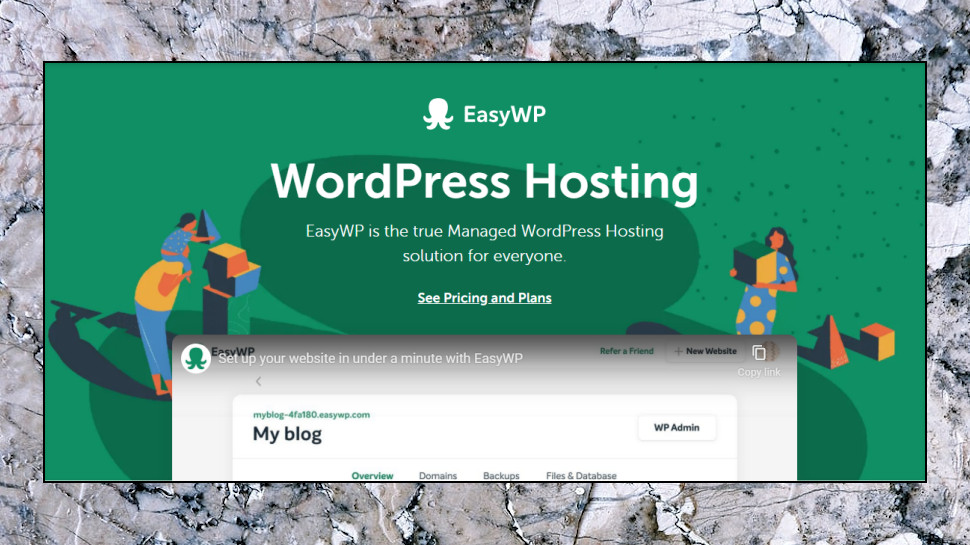
WordPress
Namecheap's managed WordPress hosting range, EasyWP, is a little short on features. Sure, WordPress comes preinstalled, but there's no smart updating system, no staging environment, no bundled plugins or anything even faintly advanced.
The only significant benefits are in the infrastructure. EasyWP runs on Namecheap's own cloud platform, which should insulate you from the badly-behaved neighboring sites you'll get with shared hosting, and the company claims it's '3x faster than standard WordPress on traditional shared hosting.'
As with the shared hosting, the real highlight is the price. EasyWP Starter is $1 for the first month, then $3.88 billed monthly, or $1.91 a month on the annual plan, $2.49 on renewal. It's a very basic product, just 10GB storage and support for around 50,000 visitors a month, but that's likely to be enough for many sites. SSL is extra, though, so again that's an additional $8.88 a year ($0.74 a month) if you opt for Namecheap's PositiveSSL certificates.
If you need more, EasyWP Turbo supports 50GB storage and 200,000 visitors a month from $7.88 billed monthly ($3.74 annually, renewing at $5.74), and EasyWP Supersonic includes 100GB storage and handles 500,000 visitors a month from $11.88 billed monthly, or $4.16 on the annual plan, renewing at $8.24. Both plans offer free SSL and CDN integration, and provide more RAM and CPU time.
These packages are fair value if you only need the WordPress basics, and if Namecheap delivers on its promises, the Supersonic plan should be able to handle some very busy sites.
Some providers offer a wider range of plans, though. For instance, IONOS has a cheap starter package - one WordPress site, 25GB storage, 10 email addresses, malware protection, free domain and SSL - at just $3 a month, billed monthly. But its high-end WordPress Pro range adds staging, allowing you to test site updates before you make them live, and intelligent updating for both WordPress and your plugins. Prices start at $18 billed monthly.
Servers
Virtual Private Server (VPS) hosting plans improve your site speed and reliability by giving it guaranteed CPU time and RAM, avoiding the fights over resources that you'll usually get with shared hosting.
Namecheap's small VPS range starts at just $11.88 a month on the annual plan for its 2 core, 2GB RAM, 40GB storage and 1TB bandwidth Pulsar package.
The Quasar plan ramps up your resources to 4 cores, 6GB RAM, 120GB storage and 3TB bandwidth, but still costs only $19.66, half the price you'll pay with many competitors.
These won't work for everyone. They're unmanaged plans, which means you're left to manage low-level tasks like software updates and operating system updates. And there's no cPanel to help you manage your sites, so you need to be very sure of your Linux skills (there's no Windows hosting option.)
You could avoid all this by paying an extra $25 a month to get full VPS management. A $10 a month 'Basic' management plan includes some server monitoring, and Namecheap will bring your server back online if it fails. Unusually, there's even a 'pay as you go' option where you pay a flat rate to Namecheap to handle particular tasks ($15 an hour to update your server, for instance.)
By the time you add management fees and maybe a cPanel license, it's likely you'll be paying a similar price to many other managed VPS products. There's nothing wrong with that, though, and if Namecheap delivers on its performance promises, the service could still be worth a look.
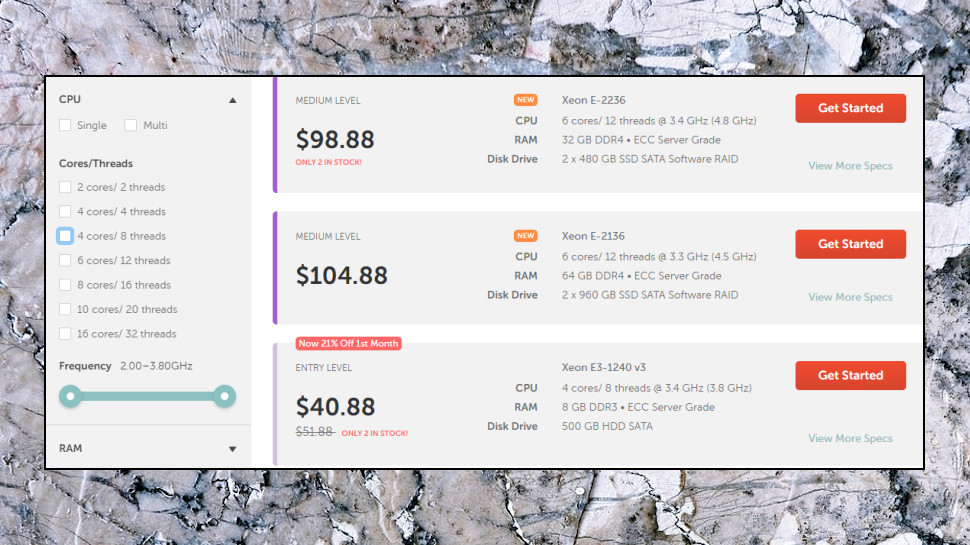
Namecheap's dedicated servers follow much the same rules as the VPS range. Headline prices are low, for example a 6 core 3.34Hz CPU, 32GB RAM, 2 x 480GB storage and 100TB bandwidth setup costing only $87.88 billed monthly, $80.74 on the annual plan. Add cPanel and basic server management, say, and the cost bumps up significantly to $130.62. But that's still great value, particularly if you need enterprise levels of bandwidth - you might not even get 10TB with some of the competition.
Getting started
Signing up with Namecheap is quick and easy. The company doesn't waste your time by trying to sell you a long list of other products, or add some of these to your cart and hope you don't notice. You get more control over how your plan is set up, too. If you don't want your subscription to renew automatically, or for the company to even save your (card or PayPal) payment details, no problem - it's your choice.
While others might leave you waiting for your account to be activated, Namecheap is a host in a hurry. A post-payment web page told us to wait a moment, and around 15 seconds, thanked us for our order and pointed us to a couple of useful 'Getting Started' guides ('How to set up your Hosting account' and 'How to I upload my site').
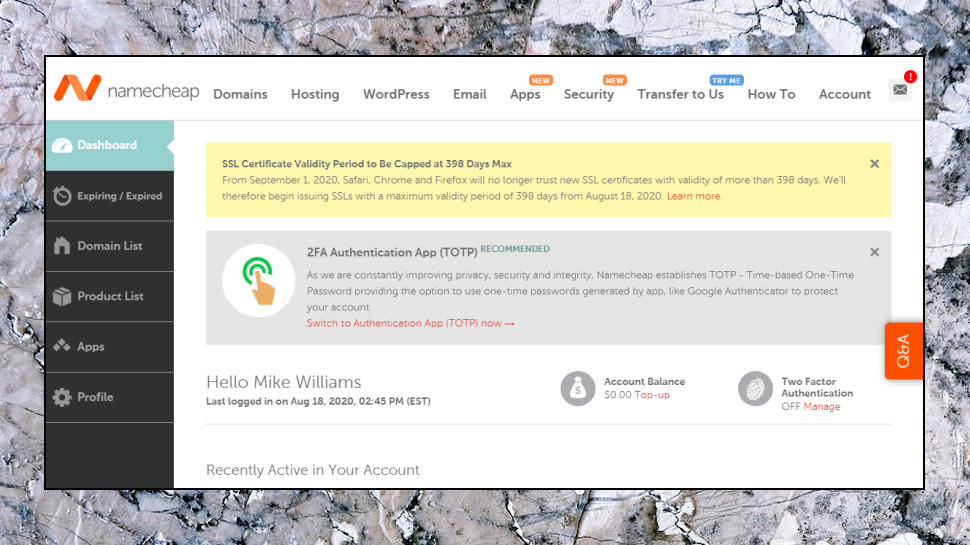
A couple of clicks takes you to Namecheap's web dashboard, a stripped-back console where you're able to manage your hosting plan, domains you might have registered and any other Namecheap products.
We saw almost no upselling, beyond a single suggested domain name. And even that was safely out of your way at the bottom of the page, where you might not even see it. Works for us.
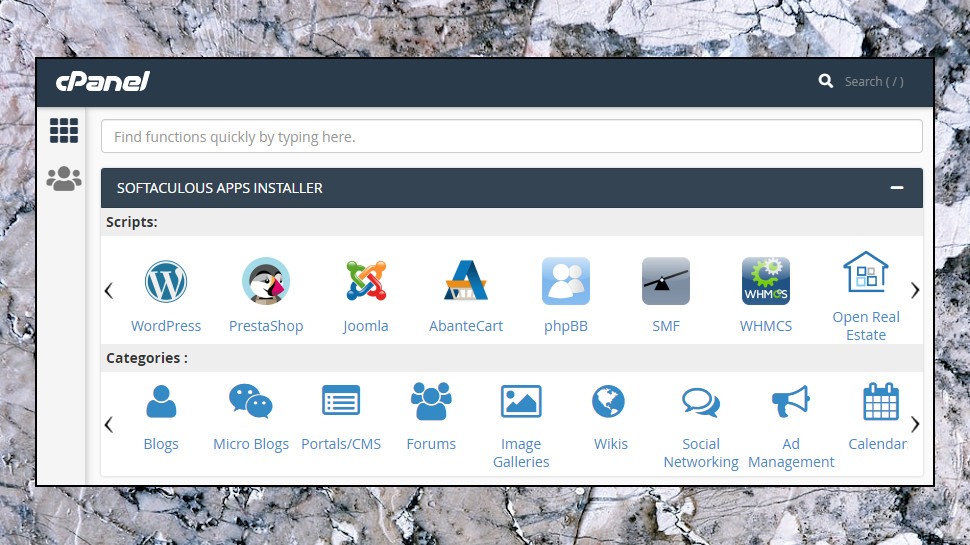
Creating a site
A couple of clicks on the dashboard takes you to Namecheap's cPanel setup. Unlike most of the competition, the company has taken the time to set this up properly, with its own main features collected together at the top of the screen: Website Builder, Softaculous, SSL management, and integration with CodeGuard backups (an optional extra), Google Apps and more. No need for newbies to scroll through the rest of cPanel because the core features they need are visible immediately.
If you want to install WordPress, for instance, launch Softaculous and you can get it done in a minute or two. (There are shopping carts, wikis and hundreds of other apps available, too.)
The drag-and-drop website builder 'only' has around 200 basic templates, but they look good, and the simple editor enables extending your site with images, videos, social media content, maps, forms, calendars, countdowns and more.
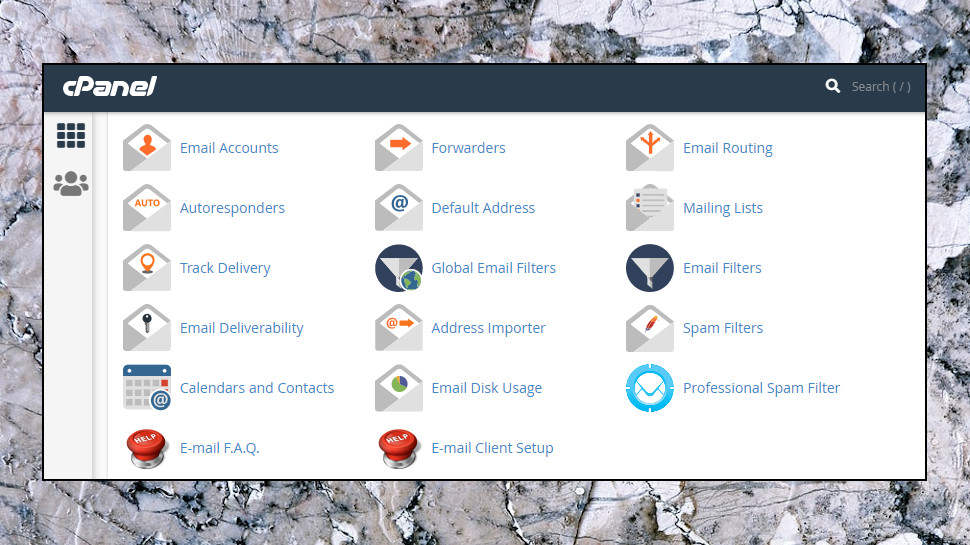
CPanel's regular File Manager makes it quick and easy to upload a static website, and manage domains, email accounts, databases and more.
Experts can go further by setting up FTP or setting up SSH, enabling direct access from the command line.
Confused? No need to try to manually find the support site, as Namecheap's knowledgebase and live chat are both linked directly from cPanel.
It's a capable set of tools, thoughtfully put together, with something for every level of user. And that's good news, especially as you get all of this with even the most basic, $1.44 a month account.
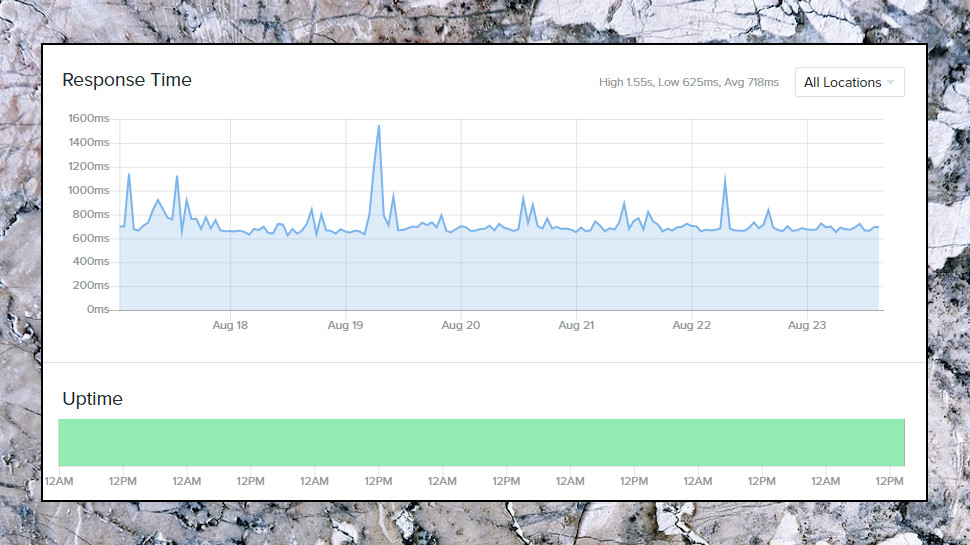
Performance
Namecheap's support begins with a searchable knowledgebase. This is neatly organized into sensible categories and covers everything from beginner-type FAQs (‘how can I renew my domain?’) to more expert-level issues (‘managing DNSSEC for domains pointed to by custom DNS’).
Most of these articles are lengthy and detailed. Unusually, Namecheap customers can add comments to the support documents and see the messages left by others. This is often used to ask questions about some issue within the article – Namecheap staff then post replies, and having these answers publicly visible clarifies the document for everyone (Namecheap doesn't appear to delete negative comments.)
There's no phone support, but Namecheap does have live chat and a support ticket system. We tried this out with a simple question and had an accurate reply within 30 minutes. There's no way to tell what might happen in more complicated, real-world situations, but Namecheap performed better than most.
That wasn't the case with our server tests, unfortunately. Uptime.com checked our test site every five minutes over a week, and although uptime was 100%, average response times were a horribly slow 718ms, with a range of 625ms to 1.55s. Most starter shared hosting plans average 200-400ms during testing, and to put this in perspective, even our current 10th place host (DreamHost) averaged 274ms with a range of 235-465ms.
We tried our site with Dotcom-Tools' Website Speed Test, which measured its download speed from 16 locations around the US and Europe, but this confirmed the previous results: the average download time of 1.9s is more than twice that of the top competition, and longer even than some free providers.
While this is poor, keep in mind that we're comparing the cheapest plans from each provider, and most of these are considerably more expensive than Namecheap. Hosts in our top 10 include Liquid Web at $19 a month, for instance, and Media Temple at $16.67; Namecheap hosting starts at $1.44, so it's no surprise there's a performance cost. If price is your top priority, though, and Namecheap is fast enough for your needs, it may still be a smart choice.
Final verdict
Namecheap isn't quite as cheap as it looks (extras like SSL bump up the price on renewal) and the cheapest shared hosting plans were slower than most. There's still real value here, though, and if your needs are simple, or you're just looking for a low-cost way to learn the hosting basics, Namecheap deserves a closer look.
- Best overall web hosting services
- Best WordPress hosting providers
- Best cloud hosting providers
- Best Linux web hosting services
- Best e-commerce hosting
- Best dedicated server hosting
- Best small business web hosting
- Best Windows hosting services
- Best managed web hosting
- Best green web hosting
- Best business web hosting
- Best colocation hosting
- Best email hosting providers
- Best VPS hosting providers
- Best web hosting resellers
from TechRadar - All the latest technology news https://ift.tt/2R5lxs8
via IFTTT
0 التعليقات: